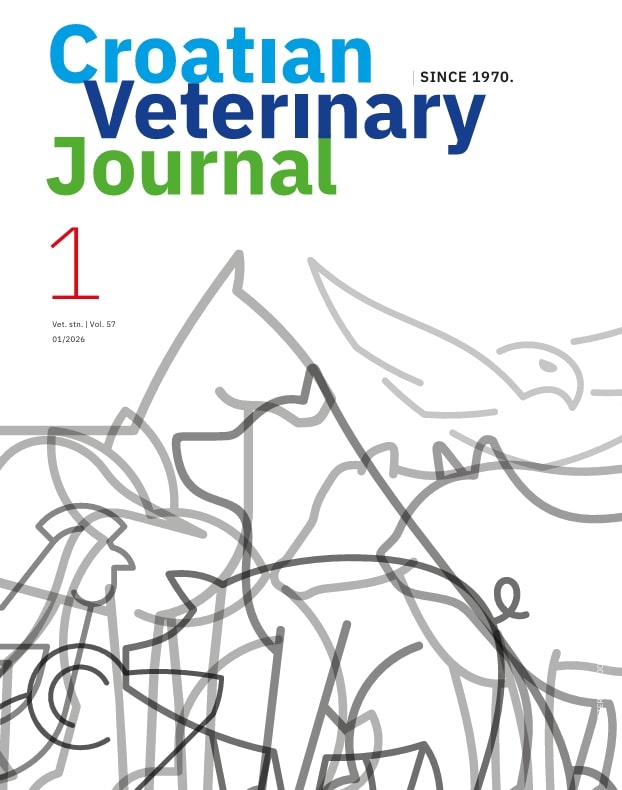The effect of probiotic complex of spore-forming bacteria Bacillus on the intestinal microbiome of normal and overweight horses
DOI:
https://doi.org/10.46419/cvj.57.1.8Keywords:
horses, dysbiosis, probiotic, microflora, 16S sequencing, treatmentAbstract
Dysbiosis in horses leads to changes in the microbiota composition, fermentation patterns and, ultimately, metabolic disorders. Spore-forming probiotic strains are considered a potential method for restoring normal microbiota and preventing diseases caused by an imbalance of gut microbial pathogens. The aim of the study was to evaluate the effect of a probiotic complex of bacteria of the genus Bacillus on the qualitative and quantitative parameters of the intestinal microbiome in dysbiosis in horses using the 16S sequencing method. The study was conducted on 16 horses (eight healthy working horses and eight overweight animals, both stallions and mares) of different breeds aged 3 to 8 years. It was established that the hindgut microbiome of the studied horses was represented by the phyla Bacillota (ranging from 43.9 to 64.2%), Bacteroidota (to 5.6%), and Pseudomonadota (to 4.8%), with the absence of Actinomycetota, Verrucomicrobiota, and Fusobacteriota. Following the administration of a probiotic complex of Bacillus spp., clinically healthy animals exhibited an increase in the levels of Clostridiaceae and Eubacteriaceae to 7.92% and 23.33%, respectively. Within the Bacillota phylum, the families Staphylococcaceae, Streptococcaceae, and Paenibacillaceae increased to normative levels, ranging from 5.39 to 6.57%, while Peptococcaceae, Veillonellaceae, and Enterococcaceae increased to 2.02–4.74% compared to values before treatment. In overweight animals, a significant increase was observed only to the lower threshold of normative values in Eubacteriaceae (3.17%) and Staphylococcaceae (4.98%), whereas Streptococcaceae increased only to minimal levels (2.88%) relative to pre-treatment values. The relative abundance of Ruminococcaceae was 2.3 times higher in clinically healthy horses compared to overweight animals, whereas prior to treatment, these bacteria were completely absent in the intestines of all studied horses and influenced the overall microbiome balance. Colonisation of the gut microbiome also involved five probiotic Bacillus strains, which were detected in minimal quantities in clinically healthy horses (up to 1.07%) and in overweight animals (up to 0.36%).
Downloads
Published
Issue
Section
License

This work is licensed under a Creative Commons Attribution 4.0 International License.
You are free to:
Share — copy and redistribute the material in any medium or format for any purpose, even commercially.
Adapt — remix, transform, and build upon the material for any purpose, even commercially.
The licensor cannot revoke these freedoms as long as you follow the license terms.
Under the following terms:
Attribution — You must give appropriate credit , provide a link to the license, and indicate if changes were made . You may do so in any reasonable manner, but not in any way that suggests the licensor endorses you or your use.
No additional restrictions — You may not apply legal terms or technological measures that legally restrict others from doing anything the license permits.

